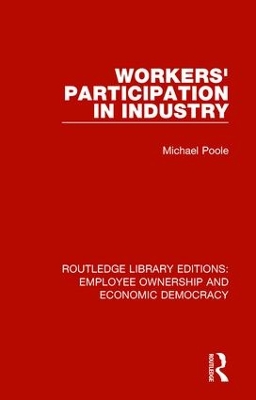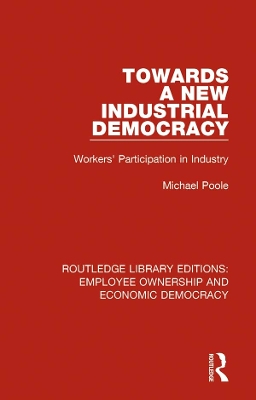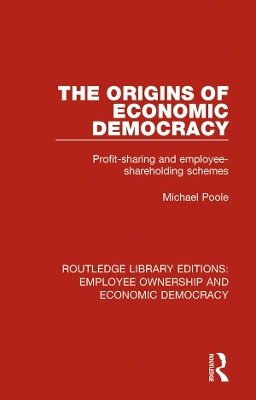Routledge Library Editions: Employee Ownership and Economic Democracy
3 primary works
Book 7
First published in 1975, Workers’ Participation in Industry provides a fresh perspective on a highly significant issue. Its principal argument is that developments in workers’ participation and control cannot be satisfactorily understood except by reference to broader questions concerning the exercise of power in industry and in society at large. The book’s approach is sociological and explanatory, and it is written for the general reader as well as for students and specialists on both sides of industry.
Book 8
This title, originally published in 1986, explores the political and economic conditions of the 1980s, and reflects the world-wide interest in industrial democracy. Each chapter analyses the main adaptations in policy, theory and experimentation that have occurred in industrial democracy in the 1980s. In particular, the role of managers is examined in depth and detail, since these personnel have been responsible for a number of recent initiatives. The themes covered are vital for all those seeking new directions in the reform of modern industrial relations in the late 1980s and into the 1990s.
Book 9
This work, originally published in 1989, examines a highly important phenomenon: the growth of profit-sharing and share-ownership schemes for employees within the company. The Origins of Economic Democracy traces the origins and developments of such schemes internationally, and presents an explanatory framework for understanding their emergence. Both legislation and economic conditions play key roles in determining the popularity of such schemes for companies and their employees. The subject of profit-sharing is of vital importance to companies endeavouring to improve their financial performance while increasing the degree of job satisfaction and organizational loyalty of staff members.


